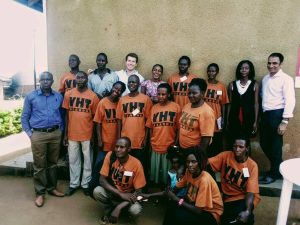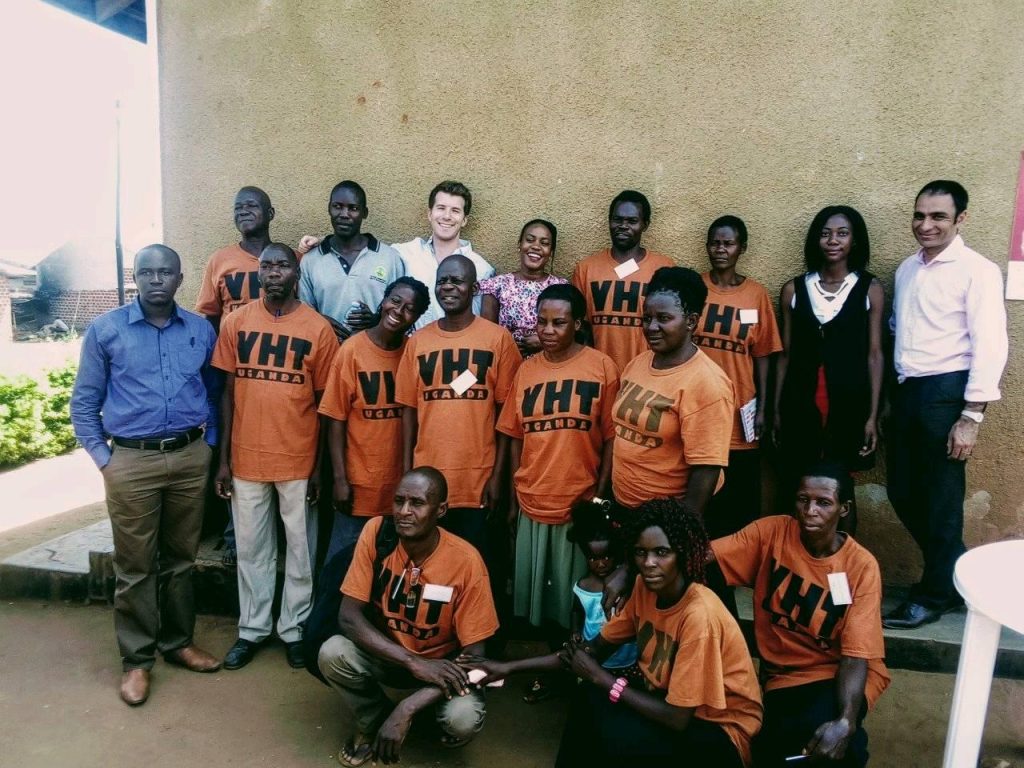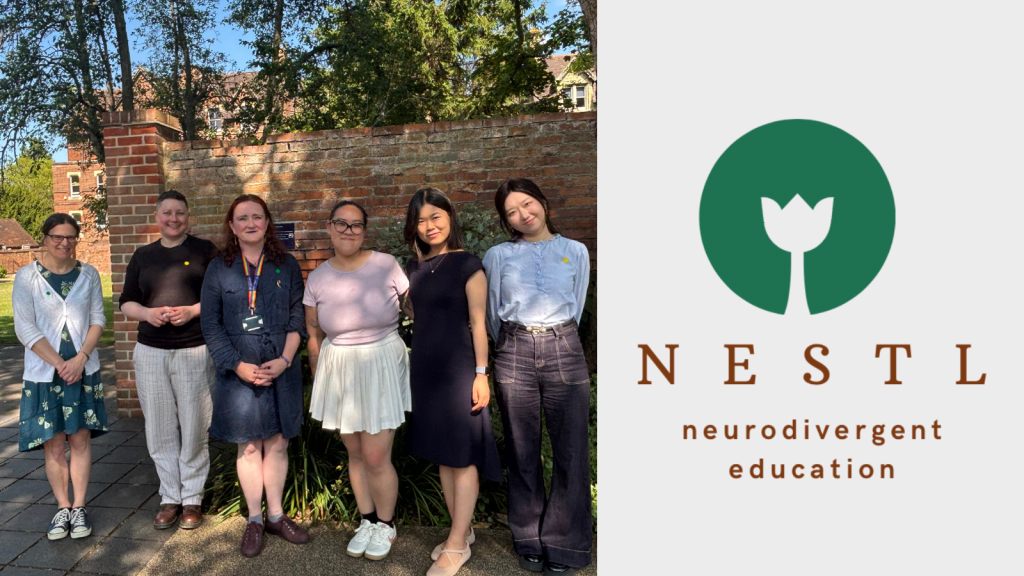Department of Education DPhil student James O’Donovan is conducting ground-breaking fieldwork in Mukono, Uganda in training Community Health Workers to recognise, treat and prevent hearing loss in remote and rural areas.
Over 5% of the world’s population has disabling hearing loss. This can cause oral language and communication impairment in children which in turn leads to adverse effects in educational attainment and behaviour and is linked to depression, dementia and social isolation in adults. However, of the global population affected, over 80% live in low or middle income countries, many of which have a severe lack of resources to prevent, diagnose or treat the disease. A report from the World Health Organization in 2013, revealed that 64% of participating countries from the African region had fewer than one Ear, Nose and Throat surgical specialist per million people, in comparison to 12 in some high-income countries.
In partnership with The World Health Organization (WHO) programme for prevention of deafness and hearing loss and The Mukono District Health Office, James’ current fieldwork aims to tackle this inequality by training community health workers to recognise, treat and prevent hearing loss. Training lay individuals as community health workers has had great success in the past in reducing common childhood illnesses such as diarrhoea, malaria and pneumonia, however this approach has been largely unexplored in regards to hearing loss.
In particular, this project aims to create a better understanding of how the use of mobile phones can support supervision of the Community Health Workers in this process and the pedagogical processes underpinning their use and is one of the first studies to take this approach.
Early findings show that some of the major underlying causes of high rates of underdiagnosed hearing loss and barriers to accessing care include a lack of clear referral pathways, widespread corruption and a lack of trust in the formal healthcare system. Despite these deeply rooted and complex issues, James is working with key partners on a local and national level to address them. So far the project has promising signs of success with over 100 individuals screened by Community Health Workers since the fieldwork began in September 2018. It is estimated that over 1,000 individuals will have been screened by the end of the six-month evaluation period.
Commenting on the importance of this research James said: “Hearing loss effects hundreds of millions of people globally, but the burden of disease falls hardest on resource poor countries. This is a social justice issue which needs to be highlighted and addressed, hopefully resulting in greater attention being paid to hearing loss and ear disease at the community level, by practitioners, academics and policy makers.”
This project is likely to be a landmark study in understanding how community health workers can address the burden of ear disease in low and middle income countries and will serve as a model for others working in this area. The project is funded by grants from the Economic and Social Research Council and The British Medical Association Charitable Arm.
James began his DPhil in Education in September 2017 and is being supervised by Professor Niall Winters (Associate Professor of Learning and New Technologies, Department of Education) and Dr Chris Paton (Group Head of the Global Health Informatics Group, Centre for Tropical Medicine and Global Health).
The DPhil in Education at the University of Oxford is an advanced research degree of high standing. The course provides graduates with a wide range of research skills as well as an in-depth knowledge, understanding and expertise in their chosen field of educational research. About 80 DPhil students from over 40 different countries are attached to the department, producing high-quality research across a wide range of topics.
Find out more about the DPhil in Education here: https://www.education.ox.ac.uk/programmes/dphil/
Find out more about James’ research here and download his latest article, ‘The use of participatory visual methods with community health workers: A systematic scoping review of the literature’ here.










